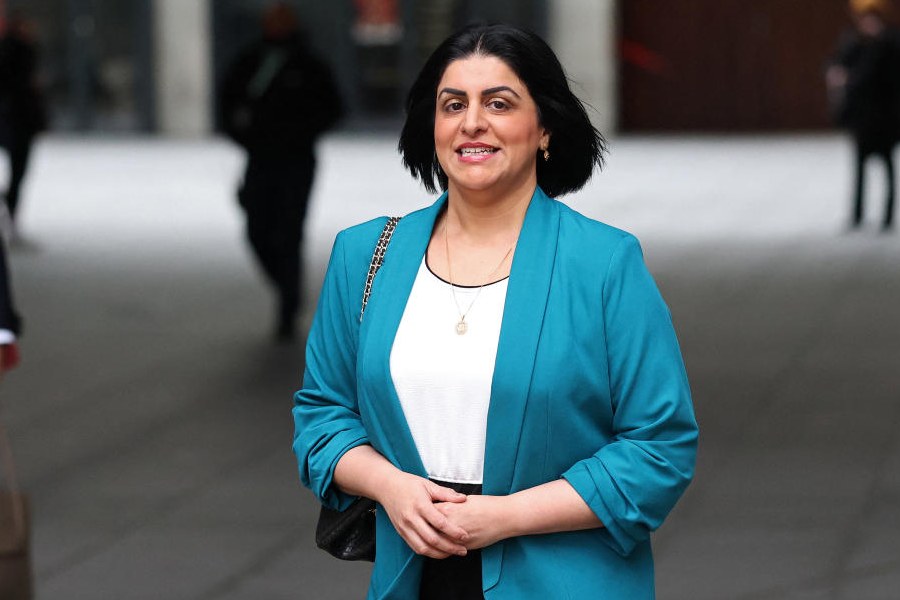Britain said it would make refugee status temporary and the wait for permanent settlement would be quadrupled to 20 years under the country's most sweeping overhaul of policy on asylum seekers in modern times.
The Labour government has been hardening its immigration policies, above all on illegal small-boat crossings from France, in efforts to stem the soaring popularity of the populist Reform UK party, which has driven the immigration agenda.
The government said it would take inspiration from Denmark's approach, one of the toughest in Europe - where growing anti-immigrant sentiment has led to increased restrictions in many countries - and widely criticised by rights groups.
Temporary status subject to review
As part of the changes, the statutory duty to provide support to certain asylum seekers, including housing and weekly allowances, will be revoked, the Home Office (interior ministry) said in a statement issued late on Saturday.
The department, led by Shabana Mahmood, said the measures would apply to asylum seekers who can work but choose not to, and to those who break the law. It said that taxpayer-funded support would be prioritised for those contributing to the economy and local communities.
The Home Office also said that protection for refugees would "now be temporary, regularly reviewed and revoked" if the home country was deemed safe.
"Our system is particularly generous compared to other countries in Europe, where, after five years, you're effectively automatically settled in this country. We will change that," Mahmood told Sky News on Sunday.
She added that under the changes, a refugee's status would be reviewed every two-and-a-half years, during "a much longer path to permanent settlement in this country of 20 years".
Mahmood said she would provide further details of the changes on Monday, including an announcement on Article 8 of the European Convention of Human Rights.
The government has said it wants to stay in the ECHR but change how the Article 8 provision, covering the right to a family life, is interpreted.
Mahmood said it was being "applied in a way that is designed to frustrate the removal of those that, under our immigration rules, would not have the right to be in this country."
The government's tougher approach has drawn criticism. More than 100 British charities wrote to Mahmood urging her to "end the scapegoating of migrants and performative policies that only cause harm", saying such steps are fuelling racism and violence.
Polls suggest immigration has overtaken the economy as British voters' top concern. Over the summer, protests took place outside hotels housing asylum seekers at public expense.
A total of 109,343 people claimed asylum in the UK in the year ending March 2025, a 17% rise on the previous year and 6% above the 2002 peak of 103,081.
Mahmood said the government would look to open more "safe and legal" routes for asylum seekers, as she believed Britain should play its part in helping those fleeing danger.
UK government inspired by Denmark, other European countries
The Home Office said its reforms would look to "match and in some areas exceed" the standards of Denmark and other European countries, where refugee status is temporary, support is conditional and integration in society is expected.
Asylum seekers are granted temporary residence permits under Denmark's approach, usually for two years, and they must reapply when these expire. They can be repatriated if their home country is deemed safe, and the path to citizenship has also been lengthened.
The Home Office said Denmark's more restrictive immigration policies had reduced asylum claims to a 40-year low and resulted in the deportation of 95% of rejected applicants.
Denmark's reforms, implemented while it remains a signatory to the ECHR, have drawn sharp criticism. Rights groups say the measures foster a hostile climate for migrants, undermine protection and leave asylum seekers in prolonged limbo.
Britain's Refugee Council said on X that refugees do not compare asylum systems while fleeing danger, and that they come to the UK because of family ties, some knowledge of English, or existing connections that help them start anew safely.











